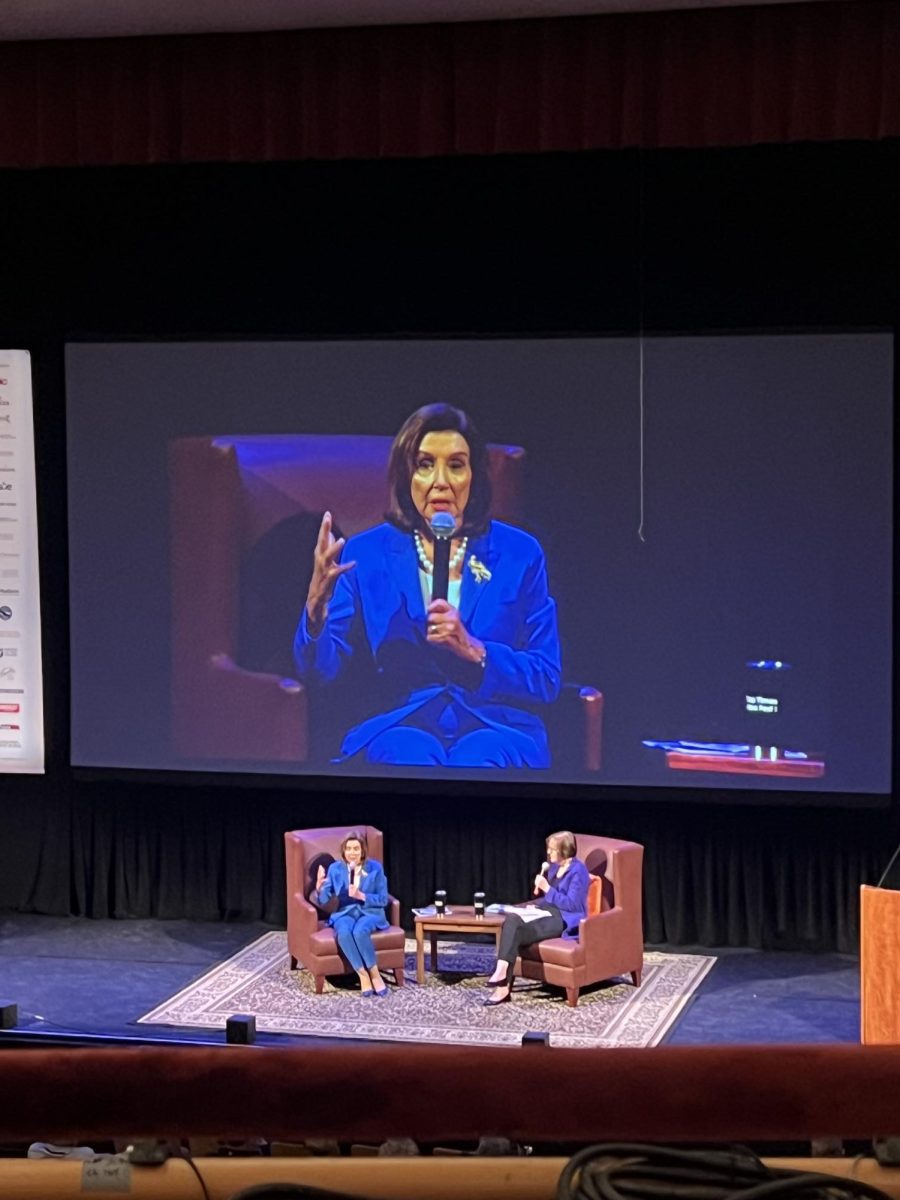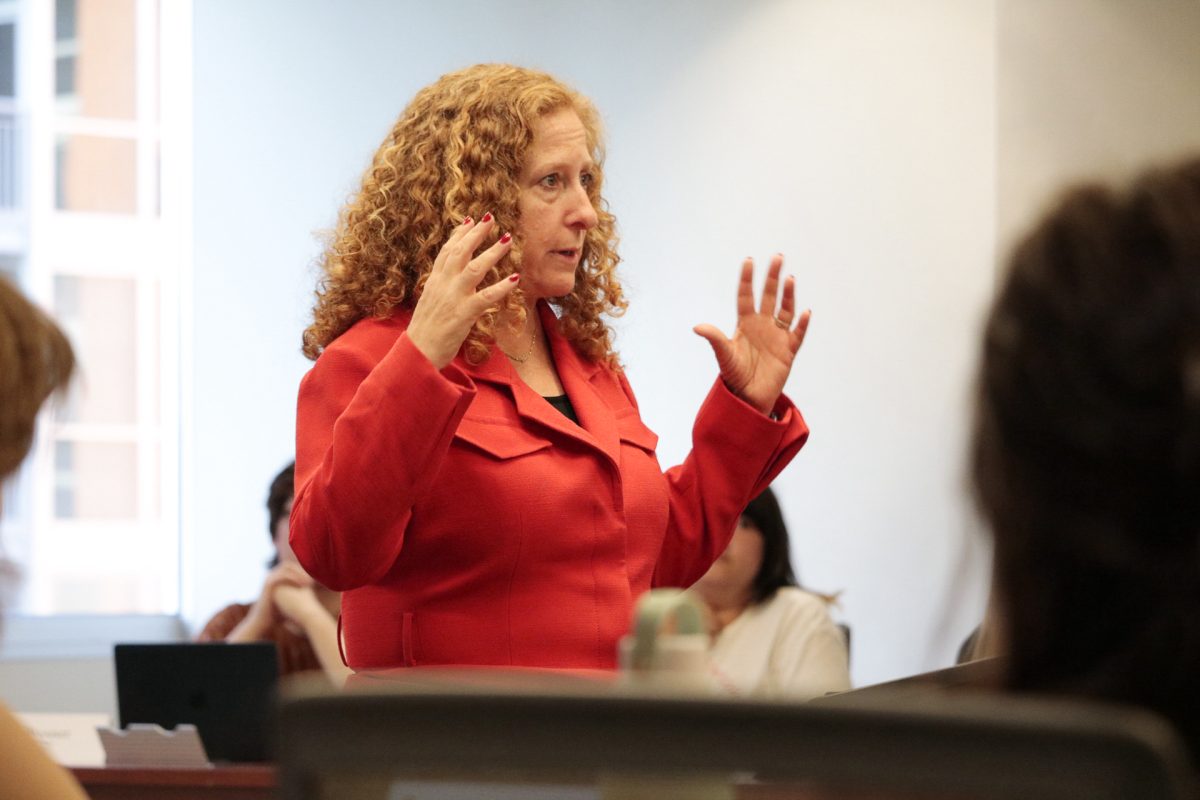http://http://vimeo.com/8938058
Ethics of primate research
In early January, a UW-Madison board discussed the ethics behind nonhuman primate research. No changes to the current research infrastructure were ultimately made.
Is experimenting on primates ethical?
Yes.
This is the official position recently adopted by the administrative body responsible for overseeing all research involving animals at the University of Wisconsin.
However, this official policy adoption has not laid the ethical debate to rest. In fact, it recently spurred 20 Dane County supervisors to sign a letter of concern to Chancellor Biddy Martin inquiring how the university approaches the ethical issue of experimenting on primates.
Martin has responded to the concerns in a letter to be sent out today.
Sentiments of Discontent
The letter, dated Feb. 5 and signed by 20 Dane County supervisors, raised major concerns regarding how the All Campus Animal Care and Use Committee reached its conclusion at its Jan. 8 meeting.
“Many of the committee members earn their salaries or benefit in other ways from research on animals,” the letter asked Martin. “How can we be confident that self-interest did not affect their decision?”
In her letter, Martin said there are members of the public on the committee and referenced the fact that the member who presented the resolution is a professor of philosophy whose scholarship has no direct connection to animal research.
“The overriding self-interest of the committee and its members is ensuring that our programs are well run and that they comply not only with the federal rules and regulations that govern animal use in research, but also with the accepted ethical standards that guide such work,” Martin said in the letter.
The supervisor’s letter also asked for an explanation of why the university chose a closed process that did not involve any study, comments from experts or deliberation.
Martin’s letter does not offer any explanation for using a closed process.
Local research critic and business consultant Rick Marolt, who has been actively urging the university to seriously consider the issue for five years, echoed these sentiments.
He said he was disappointed the committee used a closed process in coming to its conclusion, excluding public comment, meaningful deliberation and scientific study of the profound similarities discovered between humans and primates in recent years.
“They essentially said because we decide all the time to use primates (in research) we must be making ethical decisions, and therefore it must be ethical,” Marolt said.
Marolt’s aim has been to get the university to create a separate board containing qualified ethicists and philosophy scholars to look at the issue, like the one created to discuss the ethics of stem cell research for Jamie Thomson’s work.
The motion to adopt the policy was prepared by committee member and UW professor of bioethics and philosophy Rob Streiffer.
Streiffer said he was charged with the task by Committee Chair Norlin Benevenga four days before the meeting.
Streiffer admitted while there was some committee discussion following his presentation at the meeting, there was no deliberation beforehand, and he drew up the resolution without outside or internal consultation.
Eric Sandgren, committee member and director of the Research Animal Resources Center, also said he did not participate in any discussions behind the scenes and Benevenga coordinated the response.
Feeling the motion represented an exhaustion of the avenues available to an individual, Marolt said his only remaining hope for change lies with the Madison public and its representatives; a hope that began to materialize with the supervisor’s letter to Martin.
The letter is a long awaited reinforcement for Marolt’s cause. Marolt said he and his question have been passed around the university for years with no one willing to pick it up.
“Our elected officials are now saying the university is not taking this question seriously; citizens care, we care… obviously there is something going on there,” Marolt said.
Marolt qualified his enthusiasm over the supervisors’ action, saying they have no jurisdiction over the university and cannot force action.
“They are acting as representatives of citizens in our democracy and are saying our constituents care about this and the university isn’t doing anything, so we have to get involved — but they can’t force the university to do anything,” Marolt said.
Nonetheless, the letter remains a hopeful sign to Rick Bogle, co-director of the Madison-based Alliance for Animals, as well.
Bogle said the letter is significant because it shows elected county representatives have heard community outcry and have acknowledged there is cause for at least some concern.
The main obstacle to meaningful discussion at the university in Marolt’s mind remains, however.
Marolt maintains his contention that the All Campus Animals Care and Use Committee was not the right body to take up his question, and further, there does not seem to be an adequate body to do so at the university.
Marolt was first granted a hearing with the committee last August on Martin’s direction after being rejected by the Faculty Senate, the university’s governing body.
Marolt said he spent some of this initial meeting explaining why the committee was not the right body to discuss the issue, saying their charge was to ensure federal regulations were met, not to make ethical judgments.
Following the hearing, Marolt said he waited months for a written response he requested, only to receive a letter saying the committee was in fact not the right body to take up the issue.
Despite this conclusion, Martin again insisted the body was in fact the right one and told them to formally discuss Marolt’s inquiry at the January meeting and provide him with a written response.
Marolt maintains, however, that because the committee is primarily comprised of researchers and others directly benefitting from research, the body is not suited to deliberate and decide on issues that are fundamentally philosophic in nature.
“They are constituted by law to do something else; they’re not ethicists; they have self-interest… they have peer pressure, [and] they have institutional pressure, a couple of them get their salaries from animal research,” Marolt said.
Philosophic inquiry in a scientific realm
Though Marolt does not believe the committee is qualified to decide questions of ethics, philosophical arguments have been pervasive in the discussion of experiments on primates.
Sandgren, who both Marolt and Bogle have applauded for being the first scientist at the university to engage in public debate on the issue, has frequently appealed to utilitarian arguments — the idea that an action is determined right as long as benefits outweigh costs — and the idea of rights in defending primate research.
“The question of animal research is pretty much handled the same way as human research,” Sandgren said. “For each specific case, there is a protocol that must be approved. In the context of that [which] protocol questions, the questions asked are fundamentally utilitarian.”
Sandgren said a research protocol is only approved if the benefits of the research outweigh the costs of conducting invasive, painful and sometimes lethal experiments on primates.
However, Bogle, who has publicly debated Sandgren on the issue of primate experimentation on multiple occasions, questions the authenticity of such utilitarian arguments.
“I don’t really believe he adheres to a utilitarian argument,” Bogle said. “I believe it’s a smoke screen.”
He added a true utilitarian stance would endorse experimentation on certain humans over primates, as the research findings would be far more applicable and beneficial to humans.
Even if one were to accept the basic grounds for a utilitarian argument, Marolt said experimentation on primates would still not be ethical because at the root of such argument is a pervasive speciesism.
“People believe in such a deep, unchallenged, unquestioned way, that if it’s good for us, it’s good. … It’s good for us, they’re different from us, and therefore it must be ethical, and that’s as far as the thinking goes,” Marolt said.
Bogle attributes such limited mindsets to what he calls “conditioned ethical blindness”–the idea that scientists are taught from an early age to not think of animal experimentation in an ethical way.
He explains by rewarding science students who do not question the ethicality of experimenting on animals with grants and advancement and punishing those who do, they become immune to sometimes cruel experiments conducted on primates and other animals.
“In [research] settings, they’ve been given permission to treat animals differently than they are allowed to in public,” Bogle said.
Sandgren said, however, all research students are required to take a class on ethics in science with a unit dedicated to animal research.
Appeals to the notion of rights have also been frequently made by Sandgren to defend research on primates.
In short, Sandgren argued experimentation on animals is ethical, because they do not have the same rights humans are ascribed in modern society.
“Right now, in general, society ascribes to humans rights, and that allows the individual to decide (to be experimented on),” Sandgren said. “Right now, society does not ascribe those rights to animals.”
Responding to this argument, Marolt said at one point black Americans, thought to be biologically different, therefore, were not considered to have rights.
Due to recent scientific developments suggesting primates are more similar to humans than was previously thought, Marolt said the notion that primates do not have rights as humans do should be revisited.
“We know that primates experience… can feel empathy, may act altruistically [and] they can see the world from another’s point of view,” Marolt said. “Some primate species have vocabularies; some research suggests they are even capable of love.”
There will be a public discussion of experimenting on primates at Memorial Union March 15.
“It is appropriate and important that we reflect deeply on the ethical implications of what we do, that we acknowledge that there are conflicting views and that we participate in ongoing societal discussions about the relationship between ourselves as human beings and other animals,” Martin said in her letter to the supervisors.












